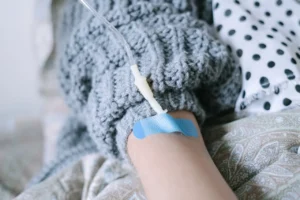
The COVID-19 pandemic has brought to light the vulnerabilities inherent in global supply chains, especially affecting the access of low- and middle-income countries (LMICs) to crucial medical supplies. The disproportionate concentration of manufacturing capacity in a handful of nations and regions has worsened this inequality, emphasizing the pressing need for fairer solutions.
Biological products like vaccines and monoclonal antibodies hold significant potential in addressing global health crises. However, the limited biomanufacturing capacity in LMICs, coupled with a shortage of skilled personnel, poses challenges to local production for national and regional health requirements.
In recognition of this growing necessity, the World Health Organization (WHO) is initiating the Biomanufacturing Workforce Training Initiative. This initiative, spearheaded by the Local Production and Assistance (LPA) Unit under the Access to Medicines and Health Products (MHP) Division at WHO, in collaboration with the WHO Academy and WHO Science Division, aims to bolster bioproduction capabilities in LMICs through accessible and tailored training programs. These programs will adhere to WHO and international standards, catering to the evolving demands of the bioproduction sector.
Managed by Dr. Jicui Dong, Head of the LPA Unit, this initiative will focus on three main pillars: leveraging existing capacity-building activities within WHO, establishing the Global Training Hub for Biomanufacturing (GTH-B), and establishing regional training centers.
WHO’s capacity-building endeavors have proven successful in providing tailored technical assistance to manufacturers and Member States. These efforts include virtual and hands-on training sessions utilizing real-world scenarios, such as the Annual Virtual cGMP Training Marathons for Vaccine Manufacturing, the Week of Quality, and regional workshops addressing key factors for sustainable local production.
The GTH-B, established in collaboration with the Republic of Korea in 2023, offers comprehensive training programs to LMICs, covering workforce capacity building in the development and manufacture of biological products. These programs encompass hands-on training in manufacturing facilities and courses on best practices and vaccinology.
Furthermore, in line with the recommendations of the 2nd World Local Production Forum (WLPF), regional training centers will be established to further enhance geographical diversity and resource synchronization.
Expressions of interest for regional training centers to become part of the global network under the Biomanufacturing Workforce Training Initiative will be solicited in the near future, facilitating broader participation and collaboration in this critical endeavor.




